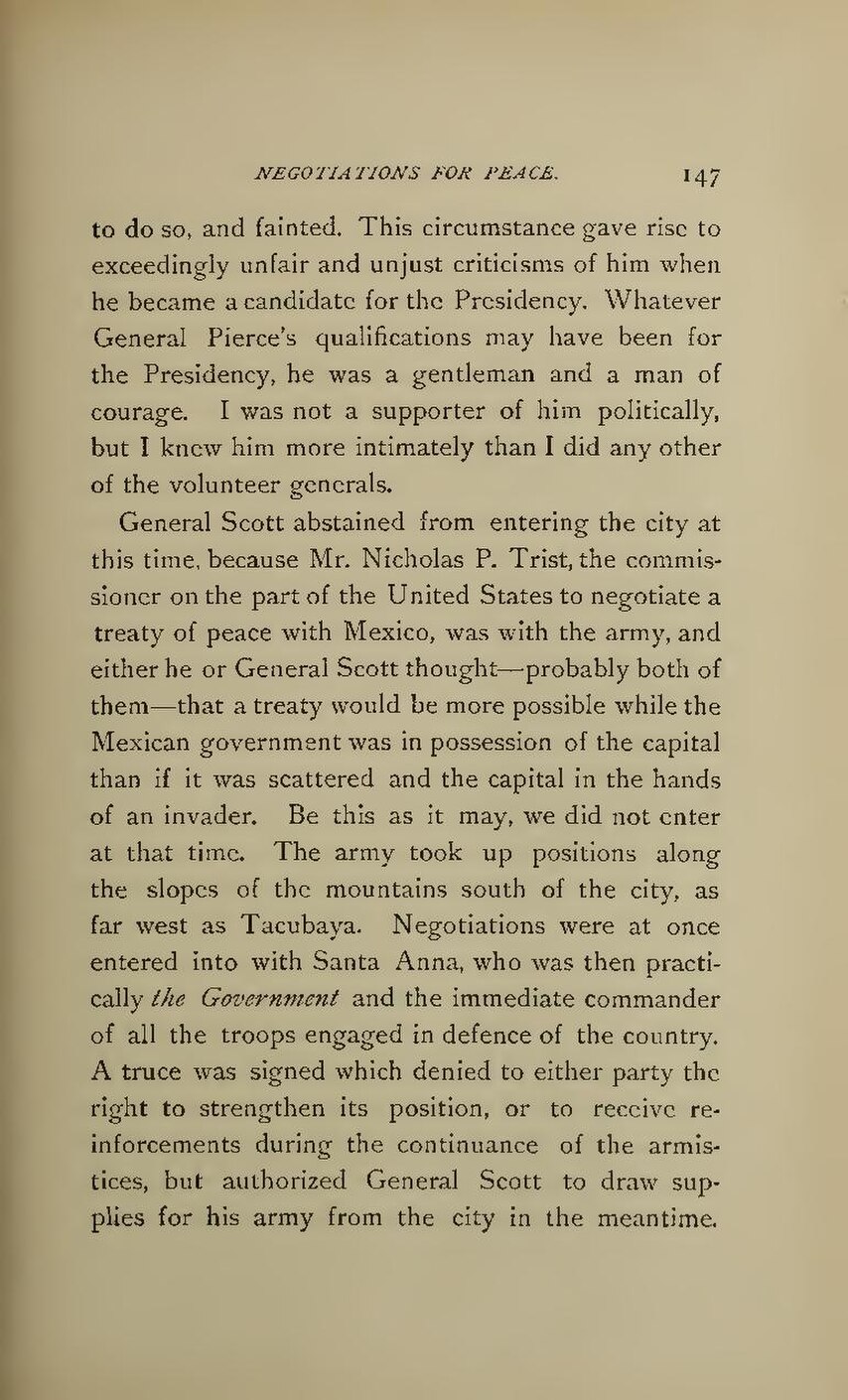to do so, and fainted. This circumstance gave rise to exceedingly unfair and unjust criticisms of him when he became a candidate for the Presidency. Whatever General Pierce′s qualifications may have been for the Presidency, he was a gentleman and a man of courage. I was not a supporter of him politically, but I knew him more intimately than I did any other of the volunteer generals.
General Scott abstained from entering the city at this time, because Mr. Nicholas P. Trist, the commissioner on the part of the United States to negotiate a treaty of peace with Mexico, was with the army, and either he or General Scott thought—probably both of them—that a treaty would be more possible while the Mexican government was in possession of the capital than if it was scattered and the capital in the hands of an invader. Be this as it may, we did not enter at that time. The army took up positions along the slopes of the mountains south of the city, as far west as Tacubaya. Negotiations were at once entered into with Santa Anna, who was then practically the Government and the immediate commander of all the troops engaged in defence of the country. A truce was signed which denied to either party the right to strengthen its position, or to receive reinforcements during the continuance of the armistices, but authorized General Scott to draw supplies for his army from the city in the meantime.
